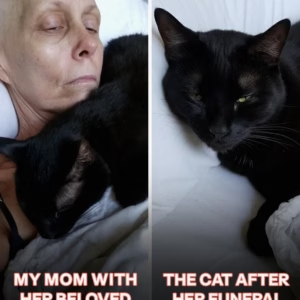Constipation might sound like a minor inconvenience, but chronic constipation can quietly undermine your digestive system and overall well-being. What starts as difficulty passing stool can evolve into a serious medical problem if ignored for too long. Recent medical cases — including a young woman whose X-ray revealed a colon swollen dangerously close to her chest — serve as stark reminders that persistent constipation is not just uncomfortable, but potentially life-threatening.
What Is Constipation, Really?
The human digestive system is designed to process food, extract nutrients, and eliminate what the body no longer needs. When this system slows down, waste builds up in the intestines. Typically, constipation is defined as having fewer than three bowel movements per week, or when stools become hard, dry, and difficult to pass.
Occasional constipation happens to everyone — from travel disruptions to dietary lapses. But when it lasts for weeks or months, doctors classify it as chronic constipation. That’s when real damage can occur, both physically and metabolically.
When the Colon Fights Back
In severe cases, stool accumulation stretches the colon beyond its natural capacity. The walls of the colon — normally muscular and elastic — lose their ability to contract properly. Doctors have documented cases where prolonged constipation caused the colon to expand upward toward the chest cavity, compressing nearby organs like the stomach and even the heart.
The patient whose X-ray shocked her medical team had gone two weeks without a proper bowel movement. Her abdomen was swollen, her breathing shallow, and her discomfort extreme. The colon’s folds, vital for pushing waste along, had flattened. This condition, called megacolon, can be fatal if untreated.
The Chain Reaction Inside Your Body
When waste stagnates in the intestines, toxins meant for elimination start to leach back into the bloodstream — a phenomenon sometimes called “autointoxication.” While that term is debated in modern medicine, the symptoms are real: fatigue, bloating, bad breath, acne, and a general sense of malaise. The immune system may weaken, and inflammation throughout the body can increase.
Chronic constipation also sets off a cascade of secondary problems. Straining during bowel movements raises the risk of hemorrhoids — swollen veins in the rectum — and anal fissures, which are small tears that cause sharp pain and bleeding. In extreme cases, stool impaction or bowel obstruction can occur, requiring urgent medical intervention or even surgery.
Left untreated, long-term constipation has been linked to a higher risk of diverticulosis (small pouches forming in the colon walls) and, more concerningly, colorectal cancer.
Why Constipation Happens
The causes of chronic constipation vary. The most common are poor diet, dehydration, lack of exercise, and ignoring the urge to go. A low-fiber diet — heavy in processed foods and light on fruits, vegetables, and whole grains — is one of the biggest culprits.
Fiber acts as a natural bulking agent, helping stool retain water and move more easily through the intestines. Without enough fiber, stool becomes hard and dry.
Certain medications, such as opioids, antidepressants, and iron supplements, can also slow bowel function. Hormonal changes, neurological conditions, or structural problems in the colon can play a role too. For women, pregnancy and hormonal fluctuations often make constipation more likely.
Signs You Should Never Ignore
Mild constipation is annoying; chronic constipation is dangerous. Warning signs that demand medical evaluation include:
Fewer than three bowel movements per week for several weeks
Severe abdominal pain or swelling
Blood in stool or bleeding during bowel movements
Unexplained weight loss
A feeling of incomplete evacuation after passing stool
If any of these occur, it’s not enough to rely on over-the-counter laxatives — it’s time to see a doctor.
The Hidden Dangers of “Holding It”
Many people underestimate the consequences of ignoring the body’s signals. Suppressing the urge to defecate — especially due to embarrassment or inconvenience — can backfire. The longer stool remains in the colon, the more water is reabsorbed, making it harder and more difficult to pass later. Over time, this habit can desensitize the nerves in the rectum, leading to chronic dysfunction.
How to Prevent Chronic Constipation
Prevention starts with daily habits. Doctors recommend the following strategies:
- Eat More Fiber.
Adults should aim for at least 25–30 grams of fiber per day from fruits, vegetables, legumes, and whole grains. Apples, pears, lentils, flaxseeds, and oats are excellent sources. - Stay Hydrated.
Water is the unsung hero of digestion. Without enough fluids, stool dries out and hardens. Drink at least 6–8 glasses a day, and more in hot climates or when physically active. - Exercise Regularly.
Physical movement stimulates intestinal contractions. Even brisk walking or light stretching can make a difference. - Establish a Routine.
Train your body by visiting the bathroom at the same time every day — ideally after meals when the digestive reflex is strongest. Don’t rush the process or ignore natural urges. - Limit Processed Foods.
Fast food, refined flour, and sugary snacks slow digestion. Replace them with nutrient-rich options that support gut health.Groceries - Use Laxatives Wisely.
Over-the-counter laxatives can provide short-term relief but should never become a long-term habit. Overuse can weaken the colon’s natural muscle function. Always follow a doctor’s advice.
When Medical Help Is Needed
If lifestyle changes don’t resolve constipation, further testing may be required. Doctors can perform a colonoscopy, motility studies, or imaging scans to check for blockages, structural issues, or underlying disease.
In severe cases of fecal impaction, manual removal or surgery may be necessary. Early intervention can prevent dangerous complications such as infection or bowel rupture.
The Emotional Toll of Chronic Constipation
Beyond physical pain, constipation can also take a psychological toll. The constant discomfort, bloating, and anxiety about bowel habits often lead to embarrassment or social withdrawal. Patients may alter their routines to avoid public restrooms or fear eating before going out. This emotional stress can further disrupt the gut–brain axis, creating a self-reinforcing cycle of tension and digestive slowdown.
Talking openly with a healthcare provider — or even a therapist — can help normalize the experience and break that cycle.
A Final Word
Chronic constipation is not merely an inconvenience; it’s a signal that your digestive system needs attention. When ignored, it can snowball into a medical crisis affecting multiple organs. Yet the good news is that most cases are preventable and treatable with proper diet, hydration, and lifestyle awareness.
Your body is designed for balance — to take in, process, and release. Respecting that rhythm is one of the simplest ways to preserve your health.
Disclaimer: This article is for informational purposes only and does not substitute for professional medical advice. Always consult a healthcare provider for diagnosis or treatment of any medical condition.





